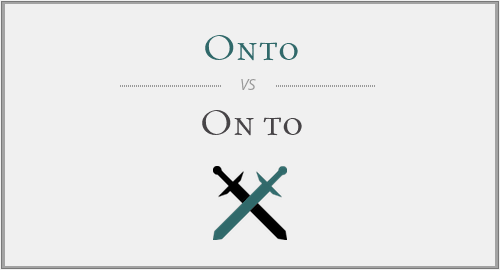Onto vs. On to: Navigating Prepositions in Language
Understanding the nuances of prepositions is crucial for precise communication. "Onto" and "on to" are two expressions that are often confused. This article aims to clarify the distinctions between "onto" and "on to," shedding light on their meanings, applications, and appropriate usage in various contexts.
Correct Usage:
Onto:
"Onto" is a preposition that indicates movement toward or position on the surface of something. It implies a physical or figurative transfer from one place to another and is often used to describe a change in location or state.
On to:
"On to" is a combination of the preposition "on" and the adverb "to." It is used when "on" and "to" appear together, each serving its respective function. "On to" generally indicates movement, progression, or awareness of a transition.
Meanings and Applications:
Onto:
Use "onto" when describing a movement toward or position on the surface of something. It often implies a change in location or a transfer from one state to another.
On to:
Use "on to" when the preposition "on" and the adverb "to" appear together. It is used to indicate movement, progression, or an understanding of transitioning from one state to another.

Examples:
Correct: The cat jumped onto the table to catch the dangling toy.
Correct: After finishing the first chapter, she moved on to the next section of the book.
Contextual Considerations:
Consider the context and the intended meaning when choosing between "onto" and "on to." If describing a physical or figurative transfer, "onto" is appropriate. If indicating movement or progression, and both "on" and "to" are necessary, use "on to."
Conclusion:
Navigating the distinctions between "onto" and "on to" allows for precise communication and avoids confusion in both written and spoken language. Whether describing physical movements or transitions in thought, understanding the specific meanings of these prepositions enhances clarity and accuracy in expression.




Have a discussion about this article with the community:
Report Comment
We're doing our best to make sure our content is useful, accurate and safe.
If by any chance you spot an inappropriate comment while navigating through our website please use this form to let us know, and we'll take care of it shortly.
Attachment
You need to be logged in to favorite.
Log In